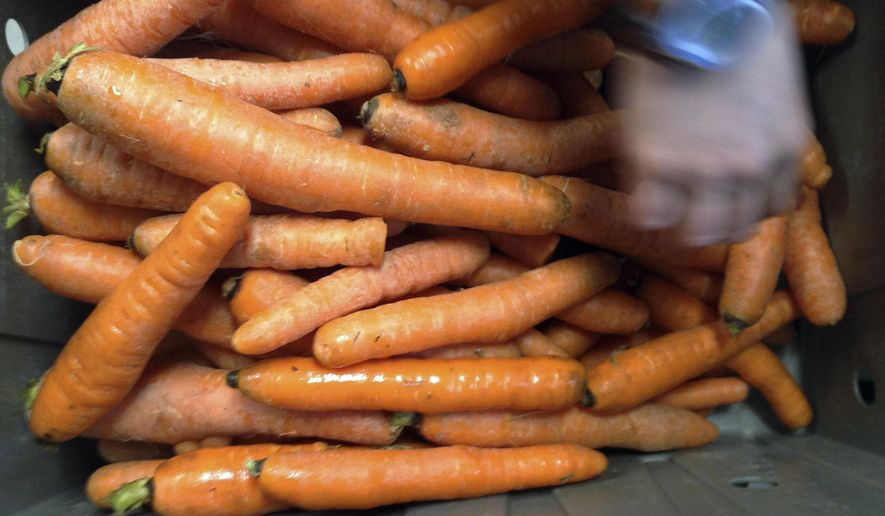Back in March, Sara Polon, owner of a D.C.-based soup and salad business, stopped to check on her tent at the Dupont Circle Farmers Market — and it looked like a “ghost town.”
“I saw the farmers standing there filled with fear,” Ms. Polon said, owner of Soupergirl. “Filled with fear from being there and filled with fear with this drastic drop of business.”
At that moment, Ms. Polon knew she had to do something to help at least some farmers sell their goods, as many across the country were struggling to turn a profit with restaurants and schools being closed and fewer people attending farmers markets.
Ms. Polon had closed her storefront and converted her business from making 80 soup and salad deliveries a week to 100 deliveries a day. She piggybacked on this operation to make deliveries for a farmer she knew well from the market, Eli Cook, owner of Spring Valley Farm and Orchard in Augusta, West Virginia.
Mr. Cook already was putting together an online order form for his new seasonal market boxes. He also had noticed a significant drop in sales at farmers markets across Maryland, Northern Virginia and the District, which make up about 70% of his business.
Of the 2,500 boxes Mr. Cook has packed weekly for his pickup at farmers markets, Ms. Polon has delivered more than 100 boxes a week to customers’ homes.
“It’s been a blessing to us and a blessing to our customers who still want fresh stuff and don’t feel like they can go out,” Mr. Cook said.
However, this new service of prepackaged produce comes at a cost, Mr. Cook said.
He spends at least one day per week preparing the boxes, labor costs more than $3,000 a week, and materials to package everything safely amounts to about $5,000 a week.
“It bothers me that we are wasting thousands of plastic Ziploc bags a week because everything needs to be prepackaged,” Mr. Cook said, adding that he can’t reuse the boxes because of health and safety regulations. “And being a steward of the earth, it’s not good to use all this stuff but I guess people’s health is more important.”
Silver Diner, a restaurant chain whose corporate headquarters is in Rockville, also is offering a local farm produce box to help farmers sell their crops.
Mike Tabor, owner of Licking Creek Bend Farm in Needmore, Pennsylvania, said he is interested in partnering with Ms. Polon, as well, especially since he lost 30% of his business when colleges opted to close.
But his ability to partner with her depends on the weather, because the coronavirus isn’t the only thing that threatens his business. Erratic weather patterns have stunted the growth of some of his crops.
“Farming is gambling on good weather, and we are hopeful we will have good crops and we are hopeful things will be back open on Labor Day,” Mr. Tabor said, noting last weekend’s freeze in Pennsylvania.
Mr. Tabor said he has accepted that he will take a loss this year and is relying on his Community Supported Agriculture customers in the Adams Morgan and Brookland neighborhoods, who are making donations and supporting his business.
A big part of why people choose to shop at farmers markets is because of the interactions they have with the farmers and the sampling, and without that, Mr. Tabor said he isn’t sure of the impact.
Mr. Cook is trying to maintain a connection with his customers via newsletters and themed produce boxes based on the fruits and vegetables his family likes. His youngest daughter wants her box to be exclusively filled with strawberries.
Customers can get to know my kids, and maybe their kids will like the same thing, he said.
• Sophie Kaplan can be reached at skaplan@washingtontimes.com.




Please read our comment policy before commenting.